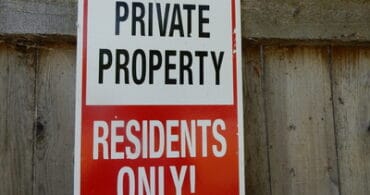Government Reveals Plans for Evictions Ban Wind-Down
The government has announced plans to wind down the current evictions ban, meaning that landlords finally have some clarity on moving forward with evictions that are currently on hold, and have been for some time. Bailiffs will as a result be able to reinstate their roles from 1st June 2021.
The government has announced plans to wind down the current evictions ban, meaning that landlords finally have some clarity on moving forward with evictions that are currently on hold, and have been for some time.
Following campaigning by the National Residential Landlords Association (NRLA), housing minister Christopher Pincher has finally put the seal on changes to evictions legislation. Bailiffs will as a result be able to reinstate their roles from 1st June 2021.
Evictions ban wind-down move ‘a relief’
The evictions band wind-down move has come as something of a relief, as many commentators had been concerned that the evictions ban may be again extended in anticipation of economic problems, with the furlough scheme on course for closing later in the year.
The restarting of the evictions process will coincide with a reduction in the eviction notice period that landlords must give to tenants. This will, on 31st May 2021, drop from six months to four months, allowing landlords to commence proceedings earlier. A further reduction in the notice period is expected in August. Some exemptions will apply, however.
Section 21 notices included
Also considered a relief to landlords is the fact that Section 21 notices are included in the relaxing of the current eviction ban restrictions. Due to the level of campaigning by tenant groups such as Shelter to have them banned altogether, it had been expected that ministers would only allow the evictions process to recommence for mandatory grounds (Section 8), rather than also include the no-fault grounds that are enabled by the Section 21 notice.
There has also been confirmation that notice periods for Section 8 evictions will return to normal on 1st October 2021. These periods will be between two weeks and two months, depending on the grounds surrounding the claim.
Good news for landlords, bad news for tenants?
Ben Beadle, Chief Executive of the NRLA commented, “Having operated under emergency conditions for over a year, today’s announcement from the Government is an important step in ensuring the sector’s recovery.”
Tim Frome of Landlord Action said: “It is good news for landlords that bailiffs will be restarting from 1st June for landlords who have possession orders. It is likely the bailiffs will be very busy clearing the backlog so we wait to see how the courts cope.”
Alicia Kennedy, director of Generation Rent, is however calling for government intervention to help with the growing number of renters who are facing arrears due to pandemic-related financial difficulties.
She says, “We can’t build back better without financial support for the renters who have been hit hardest. The Government must introduce a COVID Rent Debt Fund, allowing renters to clear their debts and landlords to claim for up to 80% of income lost.”
Evictions notice periods explained
From 1st June, current six-month notice periods will reduce to at least four months.
Notice periods for the most serious cases that present the highest levels of pressure on landlords will remain lower, as follows:
- Anti-social behaviour (immediate to 4 weeks’ notice)
- Domestic abuse in the social sector (2 to 4 weeks’ notice)
- False statement (2 to 4 weeks’ notice)
- Over 4 months’ accumulated rent arrears (4 weeks’ notice)
- Breach of immigration rules ‘Right to Rent’ (2 weeks’ notice)
- Death of a tenant (2 months’ notice)
Want to offload the whole evictions process to a property management service that also guarantees your rent?
By handing over your property management responsibilities, including the evictions process, to homes2let, you get to enjoy guaranteed rent into the bargain. That means your rent is paid, even when evictions proceedings may be in progress.
Our guaranteed rent scheme means you can take a back seat with your buy to let investment, allowing us to handle every aspect of the legal side of renting your property. We’ll also take care of day to day maintenance, property inspections and tenant sourcing, as well guaranteeing your rent every month, even when the property is vacant.
To learn more about how we remove your burdens as a landlord, please get in touch with our helpful team.
Related Insights

A Landlord’s Guide to Right of Entry
A lot of landlords are of the opinion that because they own a property, they have an automatic right of entry without first gaining permission from the tenant. There are however clear rules and regulations that dictate when a landlord is allowed, and not allowed, to enter a property, and when tenant permission is required to do so.

Landlords Face Tough Choices as EPC Deadline Looms
A new survey reveals that most landlords are aware of upcoming Energy Performance Certificate (EPC) regulations, but many are unprepared. Over two-thirds of landlords own properties that don't meet the new 'C' target, raising questions about how they will adapt. Will they invest in upgrades, pass the costs on to tenants, or simply sell up? Read on to discover the challenges and opportunities facing landlords in the face of these new rules...

The Lowdown on Landlord Insurance
Landlord insurance is designed to cover the specific risks faced when renting buy-to-let property. There are different types of cover that address the various types and levels of risks. It’s important as a landlord to know what’s available in terms of insurance, and to ensure you know what you are, and more importantly what you are not, covered for.







